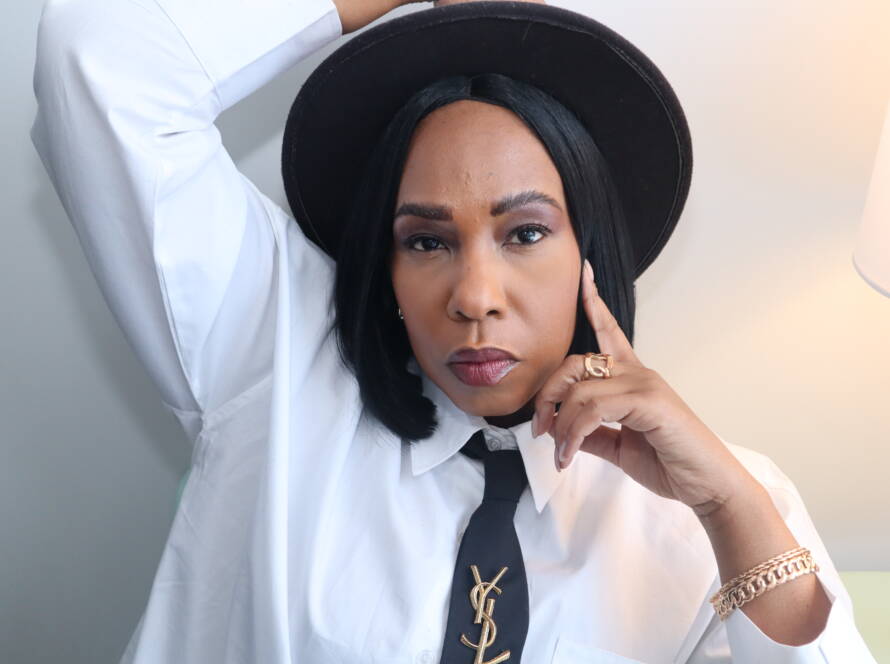Economic security is often overlooked in conversations about gender equality, yet it is one of the most defining factors in a woman’s ability to build a stable future. Meseret Haileyesus, a leading advocate for women’s empowerment and health equity, has dedicated her career to ensuring that financial justice is at the core of policies addressing gender-based violence, labor rights, and economic inclusion.
As the founder of the Canadian Centre for Women’s Empowerment (CCFWE), she has been instrumental in pushing for economic security as a fundamental part of gender equality. Her work spans maternal health, policy reform, and financial advocacy, all intersecting to break systemic barriers that leave women, especially survivors of domestic violence, economically vulnerable.
In this conversation, Meseret shares what drives her advocacy, the hidden dangers of economic abuse, and the urgent need to rethink how financial systems impact women’s empowerment.
The Journey to Advocacy
Your work spans maternal health, economic justice, and policy reform. What first inspired you to become an advocate, and was there a defining moment that set you on this path?
Meseret Haileyesus: I have always believed that true empowerment starts with economic security. My journey began in maternal health, where I saw firsthand how financial barriers dictated a woman’s ability to make choices about her health, her family, and her future. Even when access to healthcare improved, women who lacked financial independence still struggled to escape cycles of poverty and instability.
The defining moment for me was realizing how deeply economic systems shape opportunity or the lack of it. Women experiencing domestic violence often remain in abusive situations because they cannot afford to leave. Women paid less than their male counterparts struggle to build wealth and security. Seeing these patterns, I knew that if we wanted to create lasting change, we had to focus on economic policies that support long-term financial independence for women.
Understanding Economic Abuse
Economic abuse is a form of domestic violence that remains largely hidden. Can you explain what it looks like in real life and why it is critical to address it?
Meseret: Economic abuse is one of the most powerful tools of control, yet it is rarely discussed. It happens when an abuser manipulates, limits, or sabotages a person’s financial resources, restricting their ability to work, access money, or gain independence. It can take many forms, including coerced debt, wage theft, restricted access to banking, employment sabotage, or even identity fraud where financial accounts are controlled or misused without consent.
In Canada, 96 percent of women who experience domestic violence also face some form of financial control, yet our legal and financial systems still do not fully recognize economic abuse as a standalone issue. Without policies that enforce wage protections, ensure fair credit access, and integrate financial literacy into social services, too many women remain trapped. Addressing economic abuse is essential to closing the gender wealth gap and ensuring that financial systems do not continue to disadvantage women.
Canada must integrate economic security into national policies in alignment with UN Sustainable Development Goals SDG 5 and 8 and the G7 gender equity commitments to create a more inclusive economy.
Rebuilding Financial Independence with CCFWE
Through the Canadian Centre for Women’s Empowerment, you have worked to support women in reclaiming financial stability. What are some of the ways CCFWE helps survivors rebuild their lives?
Meseret: At CCFWE, we take a two-pronged approach. We provide direct support to women while also working on systemic change.
For individuals, we offer financial literacy and security programs that help women understand their rights, rebuild their credit, and take back control of their financial future. But personal resilience is not enough if the financial system itself is broken. That is why we also work with banks, fintech companies, labor lawyers, consumer protection advocates, and policymakers to push for reforms that create fairer financial structures.
We advocate for wage equity, stronger labor protections, and fair lending practices. Financial independence is not just about learning how to budget. It is about changing the economic structures that decide who has access to wealth and stability.
Advocating for Economic Security in Canada
You have been pushing to include economic abuse in Canada’s National Action Plan to End Gender-Based Violence. What challenges have you faced in this advocacy, and what progress are you most proud of?
Meseret: The biggest challenge has been shifting the conversation. Economic security is still not widely seen as a gender equality issue, even though it impacts every part of a woman’s life. For too long, discussions around gender-based violence have focused only on physical abuse, overlooking the financial control and economic sabotage that often keep survivors trapped.
We have worked hard to change that narrative. We have pushed for stronger labor protections, consumer rights, and banking safeguards, and we are finally seeing policy momentum. One of the things I am most proud of is how we have brought economic abuse into Canada’s National Action Plan to End Gender-Based Violence. These changes take time, but every policy shift moves us closer to a future where financial security is a right, not a privilege.
The Intersection of Health and Economic Justice
You have worked in both maternal health and economic justice. How do these two areas intersect, and why is it important to integrate them into policy solutions?
Meseret: Health and economic security go hand in hand. If a woman cannot access proper healthcare, whether it is prenatal care, mental health support, or basic medical services, her ability to work, earn, and plan for the future is compromised.
At the same time, when economic policies support financial security, such as paid parental leave, affordable childcare, and workplace protections, women are better able to take care of themselves and their families without sacrificing financial stability. We cannot talk about maternal health without addressing workplace rights. We cannot talk about economic empowerment without addressing access to healthcare. These systems must work together to create lasting change.
A Vision for the Future
If you could enact one policy to accelerate gender equality and women’s empowerment in Canada, what would it be?
Meseret: If I could push for one major change, it would be the creation of a National Economic Security Framework, a policy roadmap that ensures fair wages, stronger labor laws, and equitable financial access.
This would include:
- Wage transparency laws to eliminate gender pay gaps
- Affordable childcare so parents are not forced to choose between career and family
- Stronger financial protections to hold banks and lenders accountable for fair lending and investment practices
This policy would align with global commitments such as the UN Sustainable Development Goals and the G7 Charlevoix Commitment on Equality and Economic Growth, which emphasize investing in women’s economic participation, leadership, and financial security.
True empowerment happens when economic policies work for everyone, not just a privileged few. If we get this right, we will not just be helping women. We will be strengthening the entire economy, fostering inclusive growth, and ensuring that Canada leads the way in global gender equity.
Meseret Haileyesus has been at the forefront of ensuring that economic security is recognized as a fundamental part of gender equality. Through her work with CCFWE, she continues to push for systemic change, proving that financial empowerment is not just about individual choices. It is about policy, access, and the right to a secure future.
Her vision is clear. Economic justice is the key to true gender equality, and the time for change is now.




